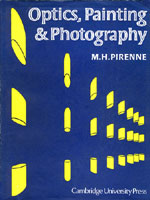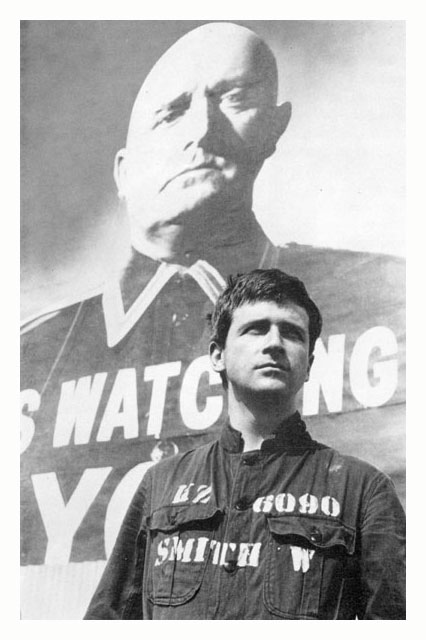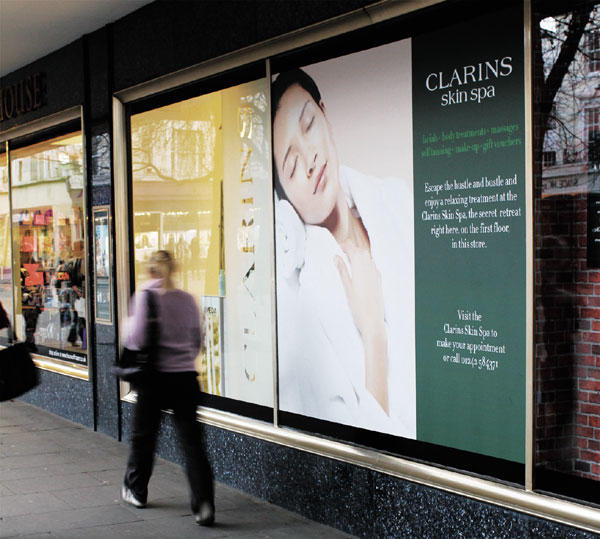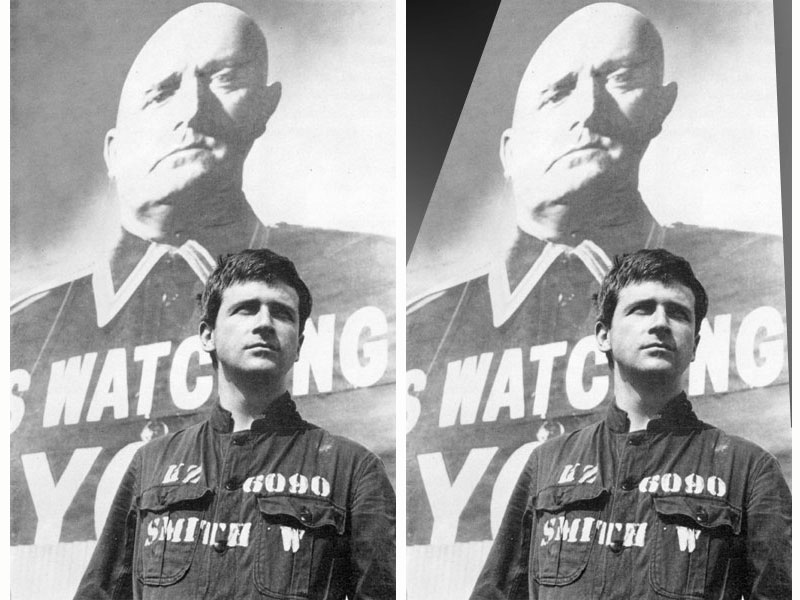
In his book Optics, Painting & Photography (1970), M H Pirenne argued that a photograph within a photograph will often appear deformed. He illustrated this with the following photograph and caption on page 97 of his book.

8.1 Deformation in a photograph of a photograph.
The head of 'Big Brother' in the background looks deformed because
it is a photograph, taken at a wrong angle, of another photograph.
The head of the young man in front, on the other hand, does not
look deformed when seen from a position away from the centre
of projection of the photograph. (from the Radio Times, 25 November
1965. 'The World of George Orwell: Nineteen Eighty-four'.)
We have our normal way of looking at the world around us, and we can adapt this to look at pictures as if they were part of the normal world. Pictures look normal even when we view them from an oblique angle. The brain must have some special tricks for the perception of pictures.
But what happens when there is a picture within a picture? A street photograph includes an advertising hoarding which is itself a photograph. Are we able to look at this in the same way that we look at the real world? It is quite plausible, as Pirenne suggests, that this overtaxes the brain so that a picture within a picture looks deformed.
I set out to take some photographs to recreate the kind of deformation that Pirenne was talking about and found that I was unable to do this. My pictures within pictures looked quite normal. One of these appears below (for other examples see page 41 of Perspective in the age of digital photography).

The 'Big Brother' photograph seems convincing until you start looking at other examples of photos within photos. The example Pirenne gives is unusual because it is not possible to see the edges of the poster of Big Brother. There is no frame around it and so it is harder than normal to separate the photograph from the photo within the photo. If Pirenne's picture is modified to show two edges of the poster, the distortion seems to disappear. This would suggest that the frame around a picture is important in triggering the brain's perceptual processing of pictures.

The issue was discussed at the LKL Maths-Art Seminar in London on Thursday 13 September 2012. John Sharp argued that, to say a picture looks deformed, is a subjective judgment. It would be more convincing if several observers made the judgment under laboratory conditions and this might show that Pirenne was correct. Another contributor to the discussion suggested that I sought out photographs where the 'picture within a picture' lacks a border, as in the Big Brother picture. This might help to establish whether the 'deformation' is due to the absence of a border, or whether it is a more general feature of a picture within a picture, as Pirenne suggests.
Richard Phillips
Return to the main page for Perspective in the age of digital photography.